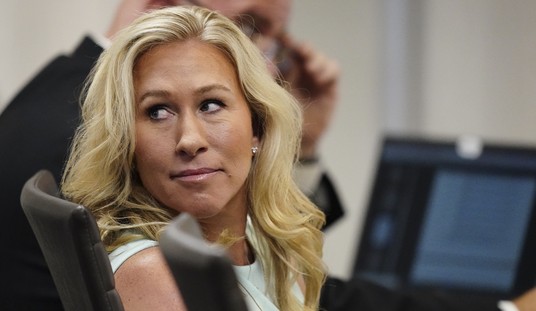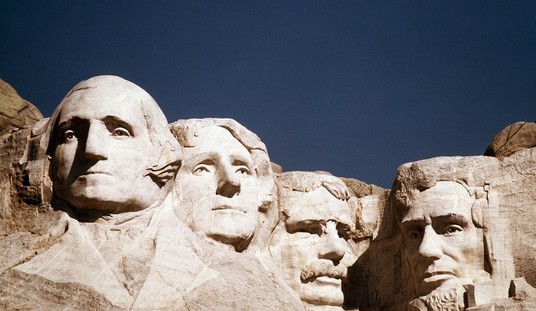The new Congressional Budget Office (CBO) report finds that 16.5 million workers would get a raise from increasing the minimum wage to $10.10 per hour and this would help millions of hard-working families, reduce poverty, and increase the overall wages going to lower-income households.
On employment, CBO’s central estimate is that raising the minimum wage to $10.10 per hour would lead to a 0.3 percent decrease in employment and CBO acknowledges that the employment impact could be essentially zero. But even these estimates do not reflect the overall consensus view of economists which is that raising the minimum wage has little or no negative effect on employment. For example, seven Nobel Prize winners and more than 600 other economists recently stated that: “In recent years there have been important developments in the academic literature on the effect of increases in the minimum wage on employment, with the weight of evidence now showing that increases in the minimum wage have had little or no negative effect on the employment of minimum-wage workers, even during times of weakness in the labor market.”…
Overall the logic for the finding that raising the minimum wage does not result in large adverse impacts on employment is that paying workers a better wage can improve productivity and thereby reduce unit labor costs. These adjustments, along with others that firms can make, help explain why the increase in the minimum wage need not lead to a reduction in employment. Higher wages lead to lower turnover, reducing the amount employers must spend recruiting and training new employees. Paying workers more can also improve motivation, morale, focus, and health, all of which can make workers more productive. In addition, by reducing absenteeism, higher wages can increase the productivity of coworkers who depend on each other or work in teams. In addition, businesses can adjust in other ways rather than reducing employment (for example, by accepting lower profit margins). CBO’s estimates do not appear to fully reflect the increased emphasis on all of these factors from the recent economics literature.
White House economist Jason Furman rejected the Congressional Budget Office’s prediction that a minimum wage increase will cost 500,000 jobs as out of step with the economic consensus.
“This is not a piece of original research into the impact of the minimum wage on employment,” Furman told reporters during a Tuesday afternoon White House call. “It’s completely reasonable to think that it would have zero impact on unemployment,” he said, citing the “highest quality” studies of the question.
The Congressional Budget Office estimated that increasing the minimum wage would cost about 500,000 jobs, a view that another White House economist said reflects an freshman-level understanding of economics that used to be common among economists but has since been abandoned by most professionals.
“No matter how the critics spin this report, the CBO made it absolutely clear: raising the minimum wage would lift almost one million Americans out of poverty,” House Democratic Leader Nancy Pelosi wrote in a statement.
For Democrats, the report hit on their income inequality fault line, showing that 16.5 million low-wage workers would see their incomes jump.
“Hard-working Americans deserve a raise, and this new report shows that over 16 million Americans will receive a raise from an increase in the minimum wage,” wrote Senate Majority Leader Harry Reid, D- Nevada, in his own statement.
[Liberals] further argue the minimum wage stood above $10 an hour in the 1960s. Raising it to $10.10 an hour would (supposedly) only return it to this previous level.
The Heritage Foundation found this analysis questionable. The most accurate inflation measures show that the minimum wage has never stood much above $8 an hour. So the President actually proposes hiking the minimum wage one-seventh above its all-time high. That would strongly encourage employers to hire fewer less skilled workers. Heritage Foundation analysis concluded that—even accounting for any stimulus effects—the proposed minimum wage hike would cost 300,000 jobs.
The Congressional Budget Office’s new report concurs.
“This report confirms what we’ve long known: While helping some, mandating higher wages has real costs, including fewer people working,” Brendan Buck, a spokesman for House Speaker John Boehner, said in a statement. “With unemployment Americans’ top concern, our focus should be creating, not destroying, jobs for those who need them most.”
Senate Minority Whip John Cornyn of Texas concurred.
“The non-partisan Congressional Budget Office confirmed yet again what we know to be true of government overreach in the marketplace: raising the minimum wage would slash jobs and harm an already fragile workforce,” Cornyn said in a statement. “Whether it’s Obamacare, a minimum-wage hike or a trillion-dollar stimulus bill charged to the nation’s credit card, the bottom line is the president’s big-government experiment kills jobs.
A new report by the Congressional Budget Office (see this summary by the Washington Examiner’s Joseph Lawler) contradicts several arguments President Obama has advanced as part of his campaign to raise the federal minimum wage to $10.10 per hour…
Obama: “Rais[ing] the federal minimum wage to $10.10 wouldn’t just raise wages for minimum-wage workers, its effect would lift wages for about 28 million Americans.”
The CBO said that 16.5 million workers — not 28 million — would receive a raise if the minimum wage is raised and that “increased earnings for low-wage workers resulting from the higher minimum wage would total $31 billion.” However, this increase would be paired with lower effective earnings “for the people who became jobless because of the minimum-wage increase, for business owners, and for consumers facing higher prices.” Thus, “Once the increases and decreases in income for all workers are taken into account, overall real income would rise by $2 billion.”…
The bottom line is that Obama has presented hiking the minimum wage as a no-brainer that would boost the economy, increase wages and immediately reduce poverty without adverse effects. CBO has estimated that in reality, the action would raise unemployment among lower-income workers, deliver most of its benefits to families living above the poverty level, and have offsetting adverse effects on businesses and consumers. To the extent that it will reduce poverty, according to the CBO, the effect will be less significant and less immediate than what Obama has claimed.
Obama presented it as a way to help struggling families: “Americans overwhelmingly agree that no one who works full time should ever have to raise a family in poverty.” That comment provides a misleading picture of who minimum-wage earners are. The White House’s own graph promoting the idea shows that only 26 percent of minimum-wage earners have kids. Thirty percent either have spouses and no kids or are kids themselves.
Raising the minimum wage is not an effective tool against poverty, either. A 2010 study found that state poverty rates were unaffected by minimum-wage increases. It also found that if the minimum wage were raised to $9.50 an hour from $7.25, only 11 percent of the beneficiaries would be people who live in poor households. Forty-two percent would be people living in households making more than three times the poverty line (which means they’re well above the country’s median household income)…
My American Enterprise Institute colleague Michael Strain puts it this way: “Hundreds of thousands of low-skill workers are trying to find a job but can’t. Is it really the right time to raise the cost of hiring and make it harder for businesses to hire them? Some studies say a higher minimum wage will lower employment; some say employment will remain unchanged. Shouldn’t we err on the side of caution?”
In an important article in the economic journal Challenge, “A Conservative Case for the Minimum Wage,” Oren Levin-Waldman, professor of public policy at Metropolitan College of New York, offered a similar view and made compelling moral points. Higher pay “increases the autonomy of low-wage workers,” he said, thus advancing “personal freedom” and “a core concept in conservative thought, which is personal responsibility.” This, in turn, means less dependence “on the largesse of others.”
And, as Annie Lowrey argued earlier this month in the New York Times, those who rightly worry about the breakdown of marriage need to remember that “creating good jobs with growing wages at the bottom of the income scale might be the best, if hardest, way to encourage young couples to wed.”
Conservative politicians really need to ask themselves: If they refuse to raise the minimum wage and at the same time insist on cutting health care and wage-support programs, are they not consigning millions more of their fellow citizens to lives of poverty? Most Americans reject this view, and that includes most conservatives who believe in work, family and personal responsibility.







Join the conversation as a VIP Member